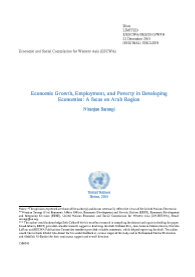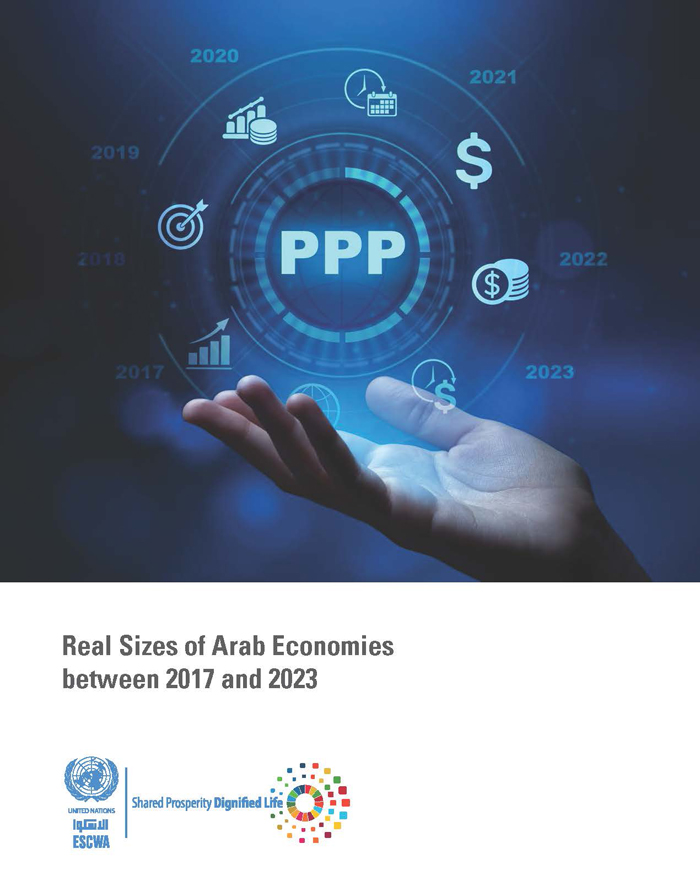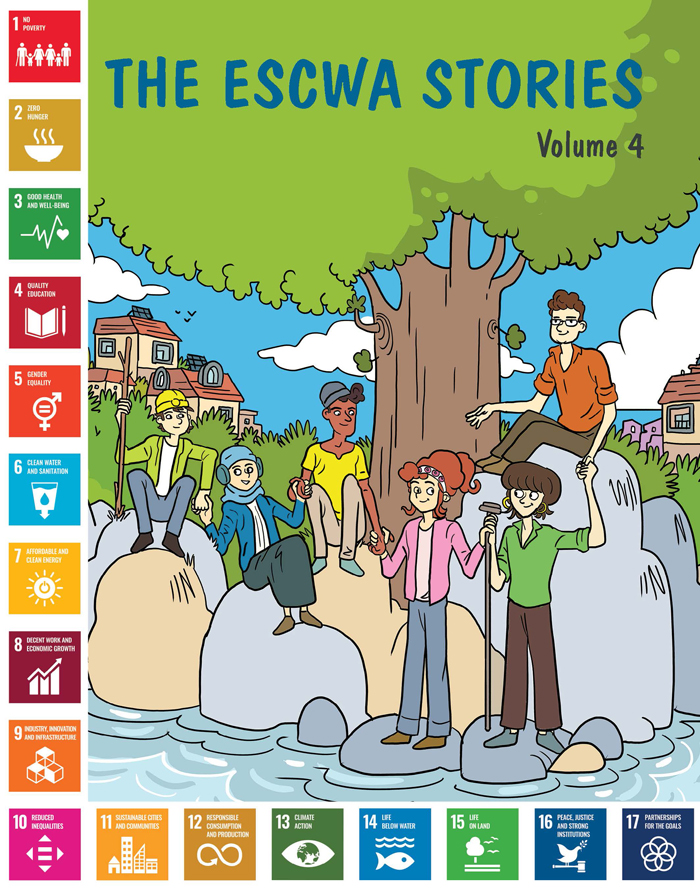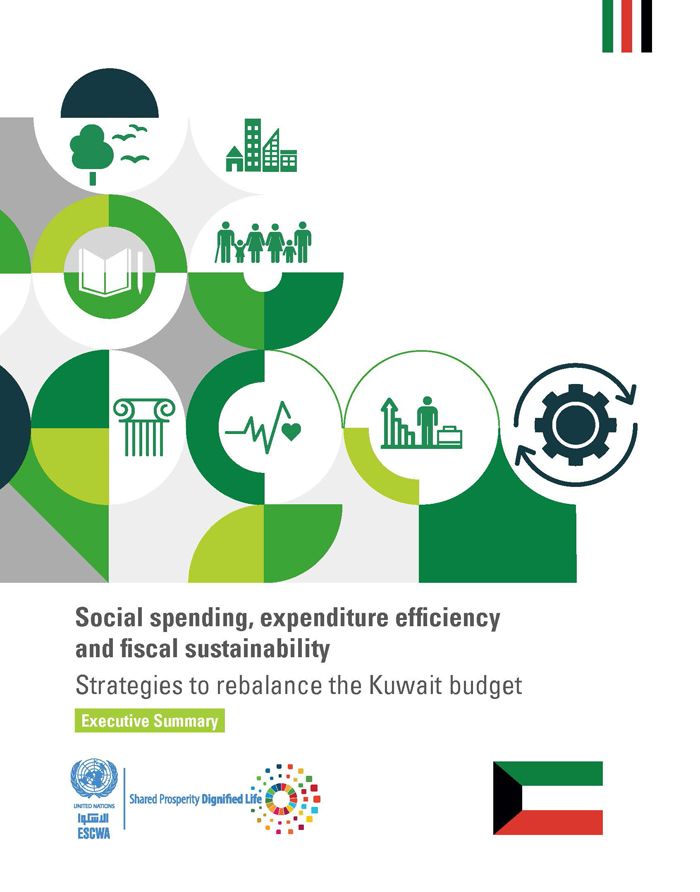
ESCWA Publication: E/ESCWA/OES/2015/WP.4
Country: Arab region
Publication Type: Working papers
Cluster: Shared Economic Prosperity
Focus Area: Debt and fiscal policy, Financing for development, Inclusive development
Initiatives: Debt Optimization to Enhance Fiscal Space, Social Expenditure Monitor for Arab States, Public finance and inclusive fiscal policy
SDGs: Goal 8: Decent Work and Economic Growth
Keywords: Economic growth, Employment, Income distribution, Poverty, Poverty mitigation, Statistical data
Economic growth, employment, and poverty in developing economies: a focus on Arab region
January 2015
The study examines the nexus between economic growth processes, employment, poverty and inequality in the developing economies, and the Arab countries in particular, during the period 1990-2013. The Shapley Value decomposition method is applied to assess the growth processes through contribution of productivity, employment intensities, and demographic shifts in share of workers. Two poverty thresholds are applied -- extreme poverty (rate below $1.25 a day in 2005 PPP) and poverty (the rate below the $2.50 a day in 2005 PPP) -- to assess the differences in impact between changes in the growth processes and changes in poverty rates through a model consisting of 344 growth spells from 52 different countries.
The results suggest that growth and inequality (both) significantly contribute to changes in poverty rates. The analysis of growth processes, however, contributes to better understand the differential impacts associated with changes in extreme poverty and poverty rates. In particular, the growth processes that have promoted jobs in higher value-added sectors, such as manufacturing, trade, transport and communications sectors, have significantly reduced poverty. On the contrary, increase in jobs in agriculture and relatively low value-added sector activities do not seem to help reducing poverty, although some people in these sectors may be able to escape extreme poverty where these sectors noted increase in productivity.
The inequality effect has a strong impact on poverty reduction. Findings indicate that a small improvement in income distribution may have a larger impact in reducing extreme poverty but a significant improvement in the income distribution is essential in order to reduce poverty. Therefore, policy choices that influence the growth processes and redistribution of income are both important considerations for addressing poverty in developing economies, particularly so in the Arab region that suffers from high unemployment despite relatively high growth in recent decades.
Related content
Debt and fiscal policy
, Financing for development
, Inclusive development
,
The study examines the nexus between economic growth processes, employment, poverty and inequality in the developing economies, and the Arab countries in particular, during the period 1990-2013. The Shapley Value decomposition method is applied to assess the growth processes through contribution of productivity, employment intensities, and demographic shifts in share of workers. Two poverty thresholds are applied -- extreme poverty (rate below $1.25 a day in 2005 PPP) and poverty (the rate below the $2.50 a day in 2005 PPP) -- to assess the differences in impact between changes in the growth processes and changes in poverty rates through a model consisting of 344 growth spells from 52 different countries.
The results suggest that growth and inequality (both) significantly contribute to changes in poverty rates. The analysis of growth processes, however, contributes to better understand the differential impacts associated with changes in extreme poverty and poverty rates. In particular, the growth processes that have promoted jobs in higher value-added sectors, such as manufacturing, trade, transport and communications sectors, have significantly reduced poverty. On the contrary, increase in jobs in agriculture and relatively low value-added sector activities do not seem to help reducing poverty, although some people in these sectors may be able to escape extreme poverty where these sectors noted increase in productivity.
The inequality effect has a strong impact on poverty reduction. Findings indicate that a small improvement in income distribution may have a larger impact in reducing extreme poverty but a significant improvement in the income distribution is essential in order to reduce poverty. Therefore, policy choices that influence the growth processes and redistribution of income are both important considerations for addressing poverty in developing economies, particularly so in the Arab region that suffers from high unemployment despite relatively high growth in recent decades.



